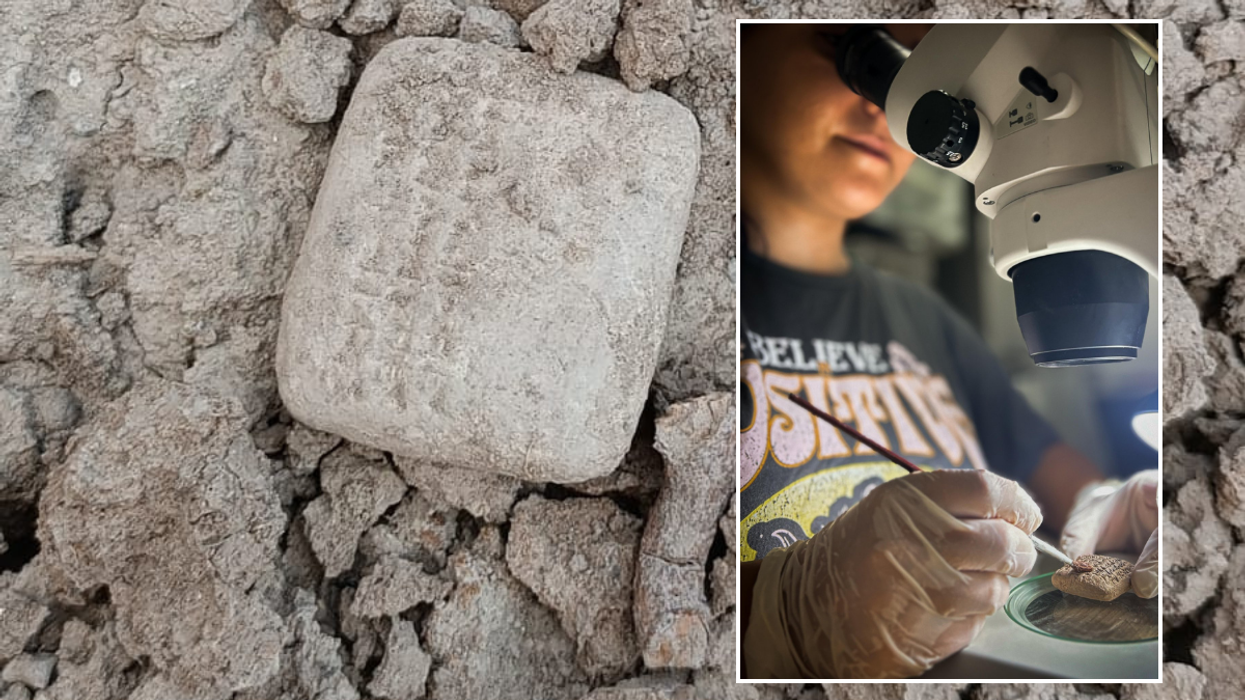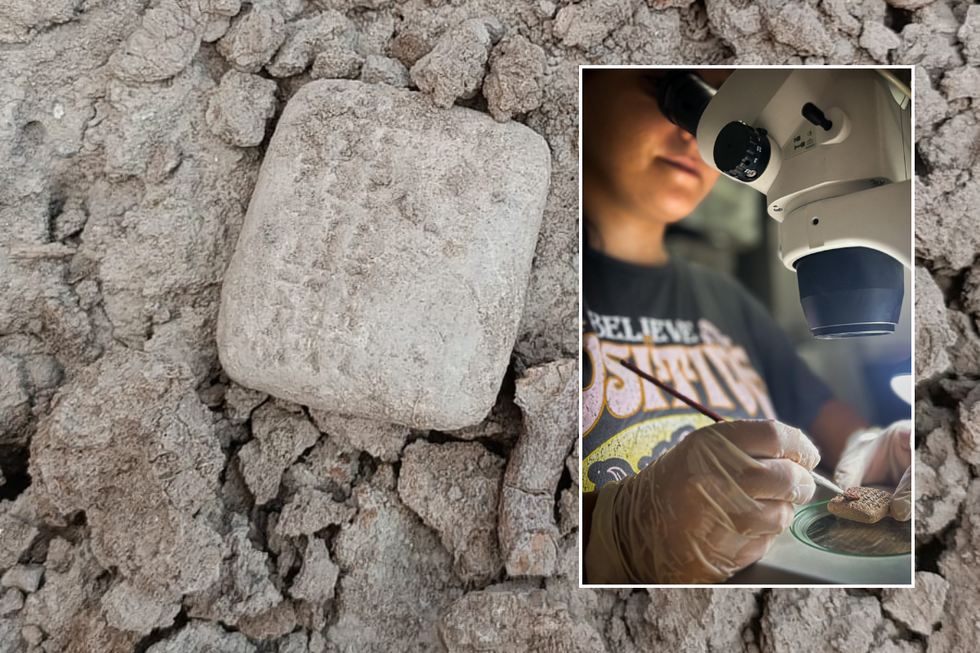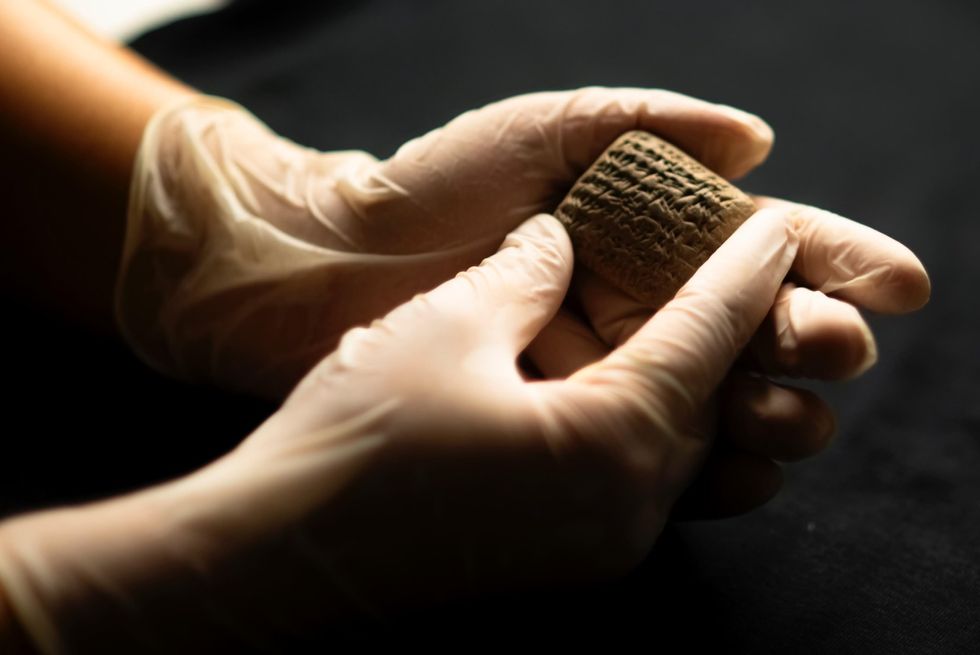Archaeologists discover 'world's oldest known sales receipt' in Turkey


The slip was written in cuneiform, believed to be the world's oldest known writing system
Don't Miss
Most Read
Scientists have discovered what they believe to be one of the world's oldest known sales receipts in southern Turkey.
The ancient document dates back to the 15th century BCE and records the purchase of large quantities of wooden furniture.
Announcing the discovery, Turkish Minister of Culture and Tourism Mehmet Ersoy explained that researchers had come across the remarkable relic at Eski Alalah, in the southern province of Hatay.
Also known as the Aççana Mound, the ancient site is located in the old city of Alalah, where workers stumbled upon the tablet during restoration works following an earthquake.

Archaeologists in southern Turkey have discovered an almost 3,500-year-old shopping list
|X/@MehmetNuriErsoy
Ersoy said: "We believe that this tablet will provide a new perspective in terms of understanding the economic structure and state system of the Late Bronze Age."
Linguists are currently working on deciphering the cuneiform text, the first few lines of which document the sale and purchase of a large number of chairs, tables, and stools, along with information about the identities of the buyers and sellers.
Cuneiform was developed around 5,500 years ago and is the oldest known writing system in the world.
Formed by impressing reed styluses into clay, the text was adopted by cultures such as the Babylonians, Assyrians, and Sumerians, each of which had its own language.
LATEST DEVELOPMENTS

Scientists and linguists are working on deciphering tablet
|X/@MehmetNuriErsoy
According to Ersoy, the newly discovered sales slip appears to be written in Akkadian, which was the lingua franca of the world’s oldest Empire.
Existing for a little more than a century, the Akkadian Empire had its capital at an unknown location along the banks of the Euphrates River, and its now-extinct dialect was the most ancient of the Semitic languages, which include Hebrew and Arabic.
In 2018, researchers came across a similar clay tablet scribbled with a complaint from a disgruntled customer who was apparently unhappy with the quality of copper that he had purchased from a merchant named Ea-nāṣir in the ancient city state of Ur, written around 1750 BCE.
The tablet, which is currently kept in the British Museum in central London, became an internet meme and holds the Guinness World Record for "Oldest Customer Complaint".
It comes after teams of researchers discovered a lost crusader altar in the Church of the Holy Sepulchre, supposedly built on the site of Jesus's crucifixion in the Christian Quarter of the Old City of Jerusalem.
Ilya Berkovich from the Austrian Academy of Sciences (OAW), who conducted the research alongside the Israel Antiquities Authority said: "We know of pilgrimage reports from the 16th, 17th and 18th centuries about a magnificent marble altar in Jerusalem.
"The fact that something so important could stand unrecognised in this of all places was completely unexpected for all concerned."










